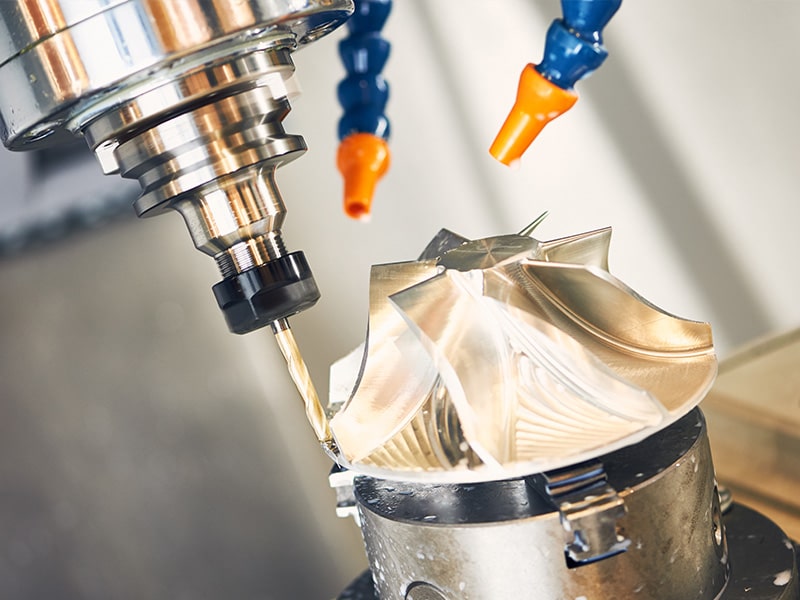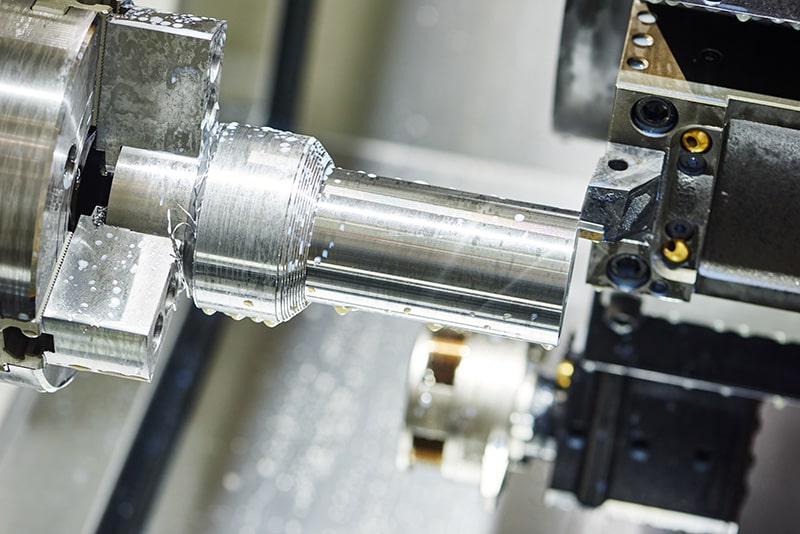CNC Machining: Remodeling Fashionable Manufacturing with Precision and Automation
CNC Machining has transformed manufacturing by providing a precise and efficient
process for making parts and components across many industries. The latest
technology makes use of machines controlled by computers for cutting and
drilling, milling and various other processes on materials such as metals,
plastics, as well as wood. The level of precision achieved through CNC machine
is unrivalled and allows for intricate design to be completed with extreme
accuracy. In replacing manual labor by automation, CNC machines have
significantly diminished the risk of human error, and also increased
productivity. The combination of precision with efficiency has made CNC
machining a vital element of manufacturing today.
One of the major benefits of CNC machines is their
ability to make complex and precise pieces with precision. Unlike manual
machining, where precision is largely dependent on the skills of the operator,
CNC machines follow programmed guidelines with a high degree of precision. These
instructions in digital format, usually made with CAD (Computer-Aided Design)
software, enable makers to design and manufacture parts with tolerances as tight
as a couple of microns. This degree of precision is essential in areas such as
medical device and aerospace manufacturing, in which even slight deviations can
affect the performance or safety of a product. By using CNC machined parts,
producers can be sure that their product is in compliance with the exact
specifications, thus reducing the chance of defects, and the necessity of costly
repairs.
The efficiency of CNC milling is an additional reason for its
wide-spread adoption. Traditional methods for machining call for experienced
operators to control the machine, alter the settings and switch tools for each
operation. The process is not just long-lasting but also subject to human error.
CNC-machined machining, on contrary, can automate the process, which allows
machines to run continuously with very little oversight. After the programme is
established and the machine is filled with the appropriate material It can carry
out multiple tasks without interruption, dramatically cutting down on production
time. CNC machines are also capable working 24/7, making they ideal for
production with high volume runs. This kind of performance allows producers to
meet strict deadlines, increase their output and cut down on labor expenses in
the process, while still maintaining top quality standards.
CNC machining
also offers excellent repeatability, ensuring that each product is exactly as
the original model. This is particularly important in the industries that demand
huge quantities of standard parts for example, automotive and consumer
electronics. Since CNC machines are programmed to follow guidelines, they are
able to produce hundreds or even thousands components with very little variation
in the quality. The consistency of the product not only enhances the reliability
of the final products but also reduces production waste since less parts have to
be returned due to imperfections. In addition, as the designs created by CNC
manufacturing can be easily altered or upgraded, companies can swiftly adjust to
the changing requirements of their product or the demands of their customers,
without having to invest in costly Retooling or recalibration of the machine. To
get further details kindly go to Premiumparts
One of the problems with CNC cutting is the cost of
initial setup. Investing in CNC machinery as well as the software required to
operate it is costly especially for smaller companies. However, the advantages
of CNC machine machining, such as lower labour costs, improved efficiency and
better product quality--often outweigh the initial cost. In addition, many firms
offer CNC machine-making services to companies that do not be able to invest in
their equipment, thus enabling smaller businesses to make use of this
technologies without having to pay upfront. If the demand for CNC manufacturing
continues to grow in the coming years, the cost of machine and software is
predicted to reduce, making it affordable to all kinds of
enterprises.
The negative environmental impacts on the environment CNC
operations is an additional aspect worth considering. Though traditional
manufacturing techniques typically generate a significant amount of waste, CNC
machines are known for their material efficiency. By precisely cutting and
shaping material, CNC machining minimizes waste by minimizing both costs for
materials as well as environmental impacts. Additionally, the automation of CNC
machines helps reduce energy use compared to manual machining processes. A lot
of modern CNC machines are built using sustainability in mind. employing energy
efficient motors and systems in order to decrease their carbon footprint. This
means that CNC manufacturing an environmentally-friendly choice for companies
looking to reduce waste and conserve resources.
Comments
Post a Comment